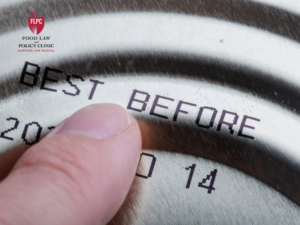This blog post was written by Health Law & Policy Clinic student Leigh Thomas (’21).
The coronavirus disease 2019 (COVID-19) is a new virus with many unknowns. The severity of the outbreak and the impact of containment measures on communities are changing daily. The LGBTQ+ community faces unique challenges and vulnerabilities during this public health emergency. What follows are resources and action items for the LGBTQ+ population during the COVID-19 pandemic.
Heightened Risks
On March 11th, a coalition of LGBTQ+ health-focused organizations published an open letter outlining the heightened risks of COVID-19 for LGBTQ+ people and recommended actions. The letter identifies three key factors that increase the vulnerability of the LGBTQ+ population:
(1) high tobacco rates (50% higher than the general population);
(2) higher rates of HIV and cancer, leading to compromised immune systems; and
(3) experiences of discrimination, unwelcoming attitudes, and lack of understanding from providers and staff in health care settings.
In addition to these factors, the organizations highlight that LGBTQ+ elders face particular risks as they are more likely to be estranged from family and isolated from key social and health services.
 The organizations recommend various actions that would serve the LGBTQ+ community during the outbreak, including ensuring that health messaging includes information tailored to the LGBTQ+ population; providing LGBTQ+ individuals resources to find welcoming providers; ensuring that any surveillance efforts capture sexual orientation and gender identity as a part of routine demographics; and, ensuring that all COVID-19 communications counter xenophobic responses and avoid racial profiling.
The organizations recommend various actions that would serve the LGBTQ+ community during the outbreak, including ensuring that health messaging includes information tailored to the LGBTQ+ population; providing LGBTQ+ individuals resources to find welcoming providers; ensuring that any surveillance efforts capture sexual orientation and gender identity as a part of routine demographics; and, ensuring that all COVID-19 communications counter xenophobic responses and avoid racial profiling.
GMHC has released a best practices guide for providers serving LGBTQ older adults during the coronavirus pandemic, with tips on inclusive policies, addressing specific health needs, and promoting resilience and mental health.
Resources for Individuals
For LGBTQ+ individuals who believe they may have COVID-19, GLMA and the Human Rights Campaign each list LGBTQ+-friendly medical providers. Be sure to follow local health guidance and call ahead before seeing a medical provider for coronavirus testing. Federal Qualified Health Centers (community-based health care providers based in underserved areas) have also been receiving guidance on how to be LGBTQ+ welcoming (and offer care on a sliding fee scale); find a local one here.

Many LGBTQ+ organizations, both national and local, are organizing community calls for people to feel connected and supported. (Credit: The Gender Spectrum Collection)
The National Center for Transgender Equality has compiled a COVID-19 guide for transgender individuals, with information about heightened risk for trans people and recommendations for creating a plan of action. The Transgender Law Center is organizing a series of community calls as a space to connect, ask questions and receive support. RSVP for these virtual community gatherings here.
The National Institutes of Health published an Interim Guidance for COVID-19 and people living with HIV. Fenway Health has also released a longer guide to coronavirus considerations for people living with HIV, including tips for managing stress and anxiety.
Action Items
The COVID-19 pandemic has left many with a sense of hopelessness—but there are some actions everyone can take now.
Several states across the country are continuing to consider bills prohibiting healthcare for transgender youth and excluding transgender youth from athletics. The ACLU has a map of anti-trans bills by state. Advocates in those states can call representatives to protest the passage of these bills.
Community health centers serving the LGBTQ+ community should keep an eye out for funding coming from the new federal stimulus bill. The bill includes $1.3 billion in emergency funding for community health centers. This funding is desperately needed as community health centers with already strapped budgets face reductions in billable services. Other foundations, such as the Tegan and Sara Foundation, have also put out a call for proposals to disperse community grants to small non-profits and others assisting the LGBTQ+ community during the pandemic.
Access to health insurance is a crucial issue during this time. LGBTQ people are more likely than non-LGBTQ people to lack health coverage. Several states have applied for waivers from the federal government to expand access to Medicaid and allow for quicker enrollment in the program. Advocates can contact local representatives to demand similar action. To increase access to private health insurance on state health exchanges, several states have declared that uninsured individuals are eligible for Special Enrollment Periods to get covered during the current emergency. Uninsured LGBTQ people may want to take advantage of these opportunities to enroll in health coverage plans at this important time.
The views reflected in this blog are those of the individual authors and do not necessarily represent those of the Center for Health Law & Policy Innovation or Harvard Law School. This blog is solely informational in nature, and not intended as a substitute for competent legal advice from a licensed and retained attorney in your state or country.

Health Law & Policy, Commentary
Cuts to the Federal Workforce and Medicaid: What’s Happening and What Can Advocates Do? – Health Care in Motion
March 12, 2025